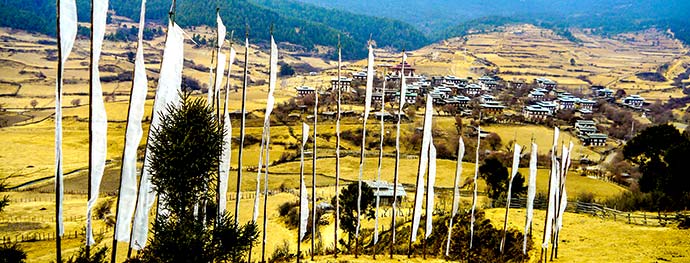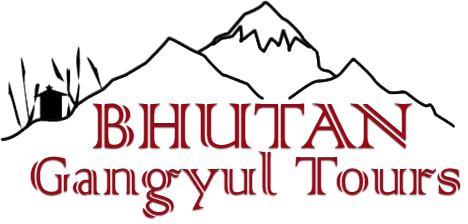- Air tickets to Bhutan (we can arrange to book your flights)
- Trip insurance
- Tips
- Alcoholic/soft drink beverages
- Travel insurance (This can be arranged with us)
- Luxury hotel upgrades (This can be done at an additional cost)
- Meals at 4-5 star restaurants
Traveller Essentials
One thing to remember straight away – what you don't pack, you buy. I've come to realize that the most efficient way for me to pack is to keep a running list of travel essentials.

Weather and Time Zone
The climate in Bhutan varies substantially from one Dzongkhag to another due to dramatic changes in the topography, elevation and altitude.
In the northern region the average temperature is 0°C in winter and may reach 10°C in summer, with an average of 350mm of rain.
Temperatures in the far south range from 15°C in winter (December to February) to 30°C in summer (June to August).
The time zone is GMT +6 hours.
Clothing and Accessories
The weather in Bhutan can change in an instant. Layering is key as it can be warm under the sun but chilly in the shade and definitely after the sun sets. Short sleeves for summer months with some long sleeve shirts or even turtlenecks depending on how easily cold you get. Fleece or wool sweaters as these are good for layering and definitely some warm coats/jackets if you are visiting during the winter months. Walking shoes- Comfortable shoes especially trainers, sneakers and hiking boots are recommended for walking and hikes.
We expect all visitors to dress modestly and respectfully when visiting monasteries, dzongs and religious intuitions. As a sign of respect please remove your shoes and hats as you enter religious institutions. Ear plugs are recommended as many visitors have complained about not being able to sleep at night due to barking stray dogs.
Language
The official language in Bhutan is Dzongkhag. However, English is widely spoken and understood in hotels, restaurants and by the public in general.
Currency
The local currency called Ngultrum (Nu for short) is pegged to the Indian Rupee which is also accepted throughout the Kingdom (except for 500 & 1000 rupee notes which are not accepted).
The banks of Bhutan now have ATM’s and you can withdraw local currency via Visa & MasterCard credit & debit cards & Cirrus/Maestro endorsed bank debit cards. The ATM’s do not always work so it is recommended you carry some cash.
Exchange rate and currencies that can be exchanged at the Banks can be found on this website and banks do not accept coins: Forex Rates
Travel Insurance
You are advised to purchase travel insurance prior to your arrival.
Customs
- Personal effects and articles for day to day use by the visitor
- 1 litre of alcohol (spirits or wine)
- Tobacco related products for self consumption must be declared and payment of import duty of 250% for which a valid receipt of purchase must be presented
- Instruments, apparatus or appliances for professional use
- Photographic equipment, video cameras and other electronic goods for personal use
- Note: While in Bhutan, visitors must retain the tax receipt to present to, if you encounter any checking by Tobacco Control Inspector.
Visitors are advised to be cautious in purchasing old and used items, especially of religious or cultural significance, as such items may not be exported without a clearance certificate.
Power Plug
The voltage and frequency in Bhutan is 220-240 Volts. 50Hertz. Most of the plugs are Round hole two-pin and three-pin power outlets although it varies from hotels. A travel adapter is recommended.
Tipping
Tipping is encouraged as a gesture of appreciation of good services that you may have received.
Drkinking Water
It is not advisable to drink water straight from the tap. Bottled water must be used for consumption at all times.

